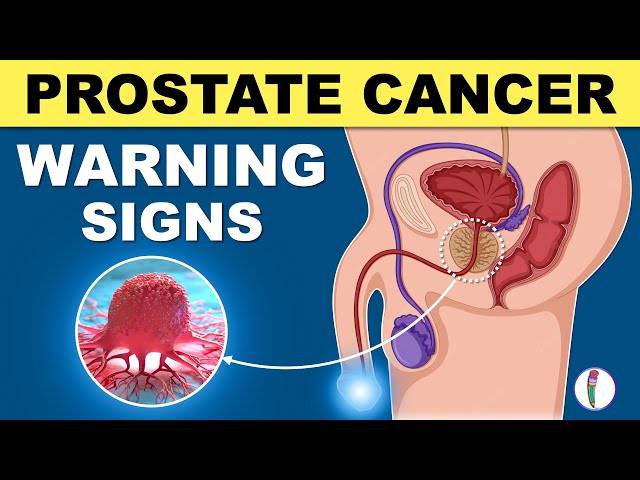Early Signs of Prostate Cancer: What You Should Know
Prostate cancer is one of the most common cancers affecting men, particularly those over the age of 50. It develops in the prostate, a small gland that produces seminal fluid and plays a role in male reproductive health. While many cases of prostate cancer grow slowly and may not cause serious harm, others can be aggressive and life-threatening. Detecting prostate cancer in its early stages can significantly improve treatment outcomes, making it crucial to recognize the early warning signs and symptoms.
Early Symptoms of Prostate Cancer
In its initial stages, prostate cancer often doesn’t show clear symptoms. This is because the tumor tends to grow slowly and remains confined to the prostate gland for some time. However, as the cancer grows, it may start to press against the urethra, causing a range of urinary symptoms that are often among the first warning signs.
Frequent urination, especially at night (nocturia): One of the earliest symptoms of prostate cancer is an increased need to urinate, particularly during the night. Men may find themselves waking up several times to use the bathroom, a symptom that can often be mistaken for aging or an overactive bladder.
Difficulty starting or stopping urination: Some men experience trouble initiating urination or may find that their stream of urine is weak or stops suddenly. This occurs because the growing tumor can obstruct the flow of urine through the urethra.
Pain or discomfort during urination: A less common symptom is pain or a burning sensation while urinating, which can be an indication of either prostate cancer or an infection of the urinary tract or prostate (prostatitis).
Inability to empty the bladder fully: Men with early-stage prostate cancer may feel as though their bladder is never completely emptied, even after urinating. This can lead to a persistent sensation of needing to urinate, even right after using the bathroom.
Blood in urine or semen: While rare in early stages, some men may notice traces of blood in their urine (hematuria) or semen (hematospermia). This can be a serious symptom and should always be investigated by a healthcare professional.
Erectile dysfunction: Difficulty achieving or maintaining an erection may occur as a result of prostate cancer, although this symptom is more commonly associated with treatments for the disease rather than the cancer itself.
Less Common Early Symptoms
In some cases, prostate cancer can cause less specific symptoms that are not necessarily related to the urinary system. These include:
Pain or stiffness in the lower back, hips, or thighs: As prostate cancer advances, it may spread to surrounding areas, such as the bones. Persistent pain in these regions can sometimes be a sign that cancer has spread outside the prostate.
Unexplained weight loss or fatigue: General symptoms like fatigue, weakness, or unintentional weight loss can be indicators of various health conditions, including cancer.
Risk Factors and Screening
Certain risk factors can increase the likelihood of developing prostate cancer. These include age (men over 50 are at higher risk), family history (having a father or brother with prostate cancer), race (African American men are more likely to develop aggressive prostate cancer), and lifestyle factors such as diet and exercise.
Because early-stage prostate cancer often does not cause noticeable symptoms, regular screening is essential, particularly for those at higher risk. Screening typically involves a prostate-specific antigen (PSA) blood test, which measures the levels of PSA protein produced by the prostate. Elevated PSA levels can indicate prostate cancer, though other factors like benign prostatic hyperplasia (BPH) or prostatitis can also raise PSA levels.
Conclusion
Recognizing the early signs of prostate cancer and seeking timely medical attention can be life-saving. While many of the symptoms, such as frequent urination or erectile dysfunction, can be caused by non-cancerous conditions, it’s important for men—especially those at higher risk—to talk to their doctors about prostate cancer screening. Early detection through routine tests can lead to successful treatment and a better prognosis.



No comments yet
Be the first to share your thoughts!